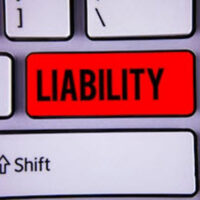Why Should We Care About Some Common Third-Party Liability Theories?

Florida’s roads and highways are home to some of the most serious vehicle collisions in the country. Frequently, victims sustain serious head injuries or spine injuries; the resulting medical bills often exceed $100,000.
Unfortunately for these victims, Florida also has one of the lowest auto insurance coverage requirements in the country. So, many of the negligent drivers that cause these crashes do not have enough insurance coverage — if they have bodily injury liability coverage at all.
Fortunately, Florida has some of the broadest vicarious liability rules among the 50 states. So, the negligent driver is often not the only party who can be held responsible for damages. Third-party liability gives these victims an additional source of recovery.
In terms of damages, a Tampa personal injury attorney can usually obtain compensation for economic losses, such as medical bills and lost wages, as well as noneconomic losses, such as pain and suffering. Skilled lawyers know to prove up additional damages that are likely to be incurred in the future as well — like missed economic opportunities and the need for future medical procedures and rehabilitation.
Owner Liability
Vehicle owners often loan their property to family members, friends, roommates, and other people. If they loan their vehicles to incompetent drivers who cause crashes, the negligent entrustment theory might apply.
This legal doctrine holds owners responsible for damages if they knowingly allow incompetent driver to operate their motor vehicles. Evidence of incompetency, in roughly descending order, includes:
- No drivers’ license,
- Safety-suspended drivers’ license,
- Driving in violation of a license restriction, like daytime-only driving, and
- A poor driving record which includes at-fault accidents.
Teens borrowing family cars are a good example of negligent entrustment claims. These claims are a bit easier to prove in Florida, because of the family purpose doctrine.
Commercial negligent entrustment claims, such as U-Haul truck crashes, work a bit differently, because of the Graves Amendment. These victim/plaintiffs must establish additional elements to obtain compensation for their injuries.
Alcohol Provider Liability
Commercial alcohol providers could also be liable for damages if their patrons cause car crashes. There’s no need to prove incompetence.
In fact, if the driver was under 21, the dram shop law, the nickname for Florida’s alcohol provider liability law, usually applies automatically. Traditional defenses, like “s/he looked older,” usually do not hold up in court.
If the driver was over 21, the victim/plaintiff must establish that the alcohol provider knew the person was habitually addicted to alcohol. Evidence on this point includes prior alcohol purchases at that establishment and statements the tortfeasor made to store employees.
Employer Liability
The respondeat superior rule usually applies in truck driver, Uber driver, taxi driver, and other commercial operator cases. This rule has two basic prongs:
- Employee: If the employer controlled the driver in any meaningful way, the driver was probably an “employee” for negligence purposes. This broad category includes people like independent contractors, owner-operators, and even unpaid church volunteers.
- Scope of Employment: Florida law defines this element broadly as well. Any act which benefits the employer in any way is within the scope of employment. If drivers operate empty vehicles which bear the company logo, they are driving in the scope of employment. Free advertising benefits employers.
It’s also easier for attorneys to establish negligence, or first-party liability, in these situations. Generally, commercial operators have a higher duty of care than noncommercial operators.
Connect with Tenacious Lawyers
Florida has broad third-party liability laws. For a free consultation with an experienced Tampa car accident attorney, contact The Matassini Law Firm. We do not charge upfront legal fees in negligence cases. A delay in investigating your claim could negatively affect your results.
